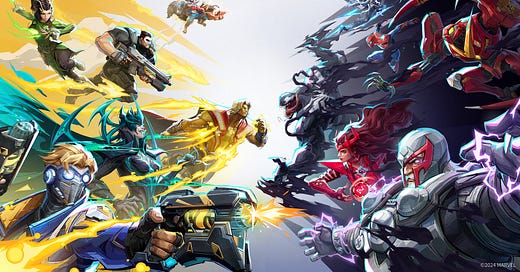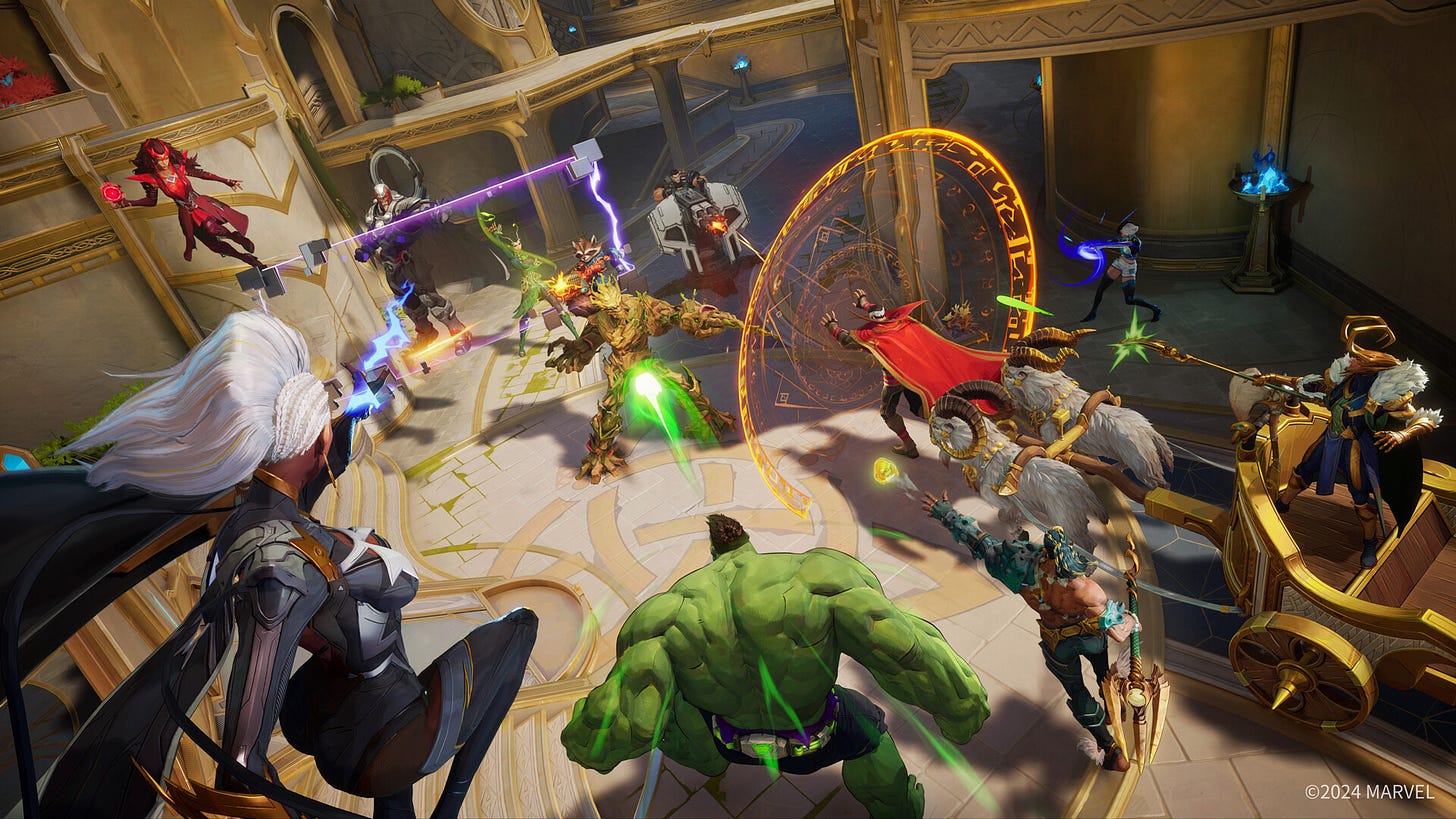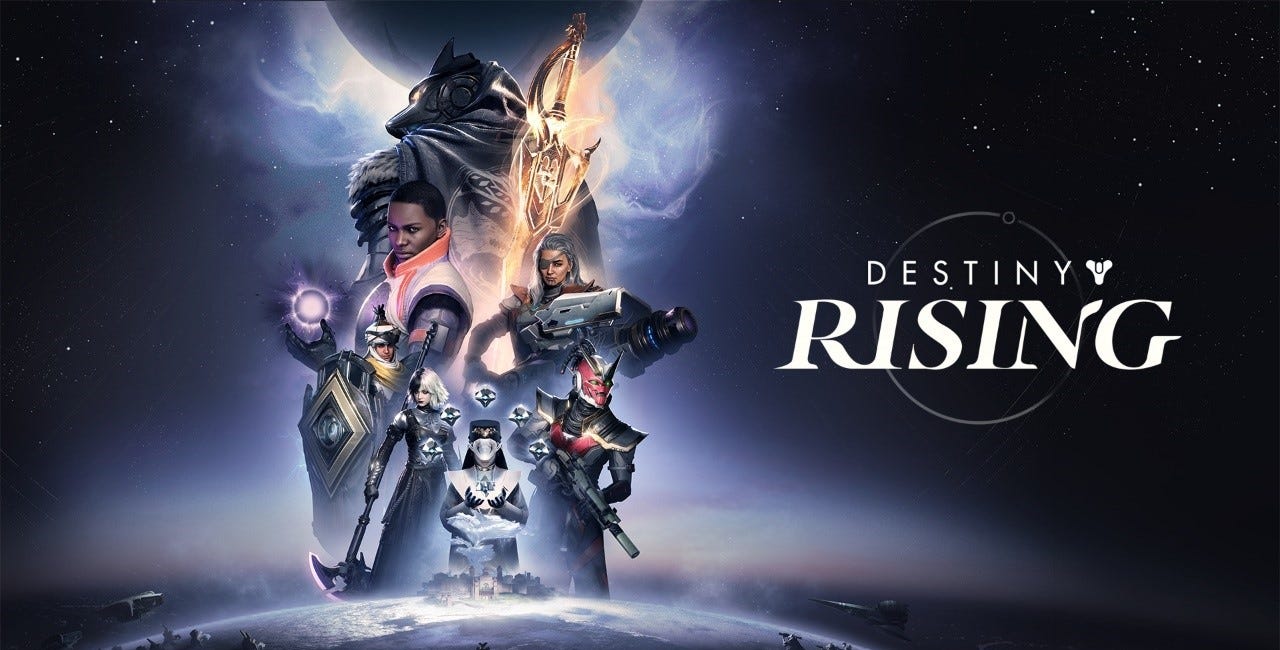Ahead of Marvel Rivals' formal debut, nine of NetEase's employees were arrested for money laundering
This development signifies a looming Avengers-level threat for the industry's fifth-largest company.
As the year draws to a close, the remaining slate of major commercial titles has emerged as rather slim. Aside from the mightily perseverant S.T.A.L.K.E.R 2: Heart of Chornobyl and a great circle drawn by MachineGames in Indiana Jones, their contemporaries have elected to emerge in the new year: Sega, Capcom, 2K, Ubisoft, Xbox Game Studios, and Plaion - erstwhile Koch Media, miraculously still part of the Embracer Group - each have a title scheduled for this coming February. However, there is an adjacent proposition in Marvel Rivals: a team-based brawler in the precise cadence of Overwatch, differentiated through a third-person camera and a gallery of Marvel’s mightiest members. A free-to-play engagement from NetEase, concurrently developing a mobile adaptation of Bungie’s Destiny series, Rivals strives to capture the chaos of a crossover comic event, exercising extensive destruction physics and dynamic locomotion to capture their characters’ essence.
Marvel Rivals is a graphic experiment on a tantamount scale to the MCU’s own storytelling alchemy.
From both promotional material and beta impressions, one may conclude Rivals to be an effective retort to the last major Avengers title: the eponymous looter-shooter-smasher from Crystal Dynamics and Square Enix. Each hero appears to have maintained their heterogeneous qualities, from Spider-Man’s athletic wiles to the Punisher’s hulking arsenal - in addition to the Hulk’s own. However, in a conceptual regard, the third-person angle for an arena fighter of this design - intended to encourage players to invest in additional, visible cosmetics - makes matches appear far too busy; negotiating your character’s place against fast-moving foes is harder than it would be from a first-person placement. Nevertheless, this is a consequence of conceiving a game around characters, rather than gameplay: its skirmishes are predicated upon standard objectives featured in archetypal hero shooters.
A parallel narrative has splintered from the game, however, manifesting in the form of internal corruption. Nine members of their team, including former esports lead Xiang Lang and head of publishing Jin Yuchen, were arrested. These employees were said to have laundered between 800 million and 1 billion yuan, equating to $111.4 or $139.3 million USD; 27 companies were implicated in the scheme. This development is consistent with a greater trend of anti-fraud interrogations within Chinese firms, namely Douyin, Tencent, and Meituan. As this case is still under investigation, NetEase have not submitted a formal statement unveiling further detail, potentially compromising the launch of Rivals and trust in Destiny: Rising.
Bungie's migration to mobile indicates the destiny of their studio: tethered to another
To paraphrase the immortal, if not infamous words of Blizzard: do you guardians not have phones?
NetEase’s incursion into mainstream commercial development with known properties represents a desire to affirm itself as a multinational brand - in a complimentary regard to Tencent’s own power plays ultimately influencing Ubisoft’s fiscal vigour. However, their dalliances with Triple A development have not yielded a crossover success. Their acquisition of Quantic Dream ensured ownership of a major narrative title in Star Wars: Eclipse - though it does not have an indication of a release date, nor window, rather a suite of quotes colouring its gaudy ambitions. This crisis represents a particular disorder within their house, eroding trust from their partners and gaining a great deal of scrutiny from their governing bodies.
By association of licence, NetEase are entangled with Disney: their persistent metaverse forged with Fortnite is a clearer evocation of their multimedia drive, rather than a stratified model of outsourcing entangling themselves in third-parties and negotiated agreements. Their 1.5 billion investment into Epic Games signifies a belief in the Unreal Engine’s propensity to codify a corporate metaverse - a theme park accessible from one’s own couch. Risky plays in Eclipse, for instance, entangle Star Wars in the aberrant fascinations of Quantic Dream, rather than the careful narratives exhibited through their direct-to-consumer platforms.
Should Rivals cultivate a clique of enthused, monetised players, Disney will happily continue to lend NetEase their prized stable of characters. However, if the coming report on this internal corruption indicates further instability within the studio, Disney may permanently retreat to Fortnite’s hermetic virtual world, ensuring a consistency in identity. Ultimately, Fortnite is far greater than a solitary licenced title, demanding thorough production timelines: it is a platform, an online community. Eclipse may have a striking trailer, but consumers will only buy it once: Fortnite is a sustained investment Disney has active equity in. Most importantly, however, it has its own Guitar Hero.





